I just finished my talk on Blinkenlights. It took quite some time to organize the setup but the crew in the end managed to get the microphone fixed. I am still proud of my new toy, the best-spent 10 dollars ever: Clicker. Doing a presentation with a phone can still be considered rather cool and I love cool things.
After the talk I got invited to a Wardriving session. So now I am sitting inside a japanese car driving through Torino heading to the Fiat headquarters. I am on the front seat, with three young hackers in the back (16/17/20).
Fiat is to Torino what Stuttgart is to Mercedes-Benz (or to be more precise: to Daimler-Chrysler). The town basically lives from Fiat. I guess there is more Volkswagen in Wolfsburg than Fiat in Torino. But it just a rough estimate and one of these totally meaningless infobits.
After ten minutes at Piazza Bernini AirSnort discovers the first network. I had some doubts if wardriving works inside a car without extra antennas. The first network has no password set, so it‘s open. So easy. I was told that wireless security is still a new concept in Italy. I believe it.
It took quite some time for my talk to begin because the crew was playing a weird theatre-style game about sex and computers. I didn‘t really get it as everything was in italian and I left my personal translation assistant at home. But everybody was dressed-up, in good mood and they danced and played strange games so there was a forced delay before I could start with my stuff. Because of the heat I was drinking a lot and unfortunately the coldest drink was beer. So I was already quite pissed when I did my talk. Now the fast driving style are probing my stomach. Hope this is not becoming too embarassing for me.
The second network was discovered. This time it is encrypted with WEP. We move on. For a while a police car precedes us with the flash light on. We look a bit like one of these Corps Diplomatique in Berlin. Next stop at the central post office. This time it is two networks at the same. Weird configuration. No results. We proceed. My stomach makes a nervous move.
My PowerBook sucks. It goes off every now and then because of the vibration caused by italian streets and italian driving style. Hope my stomach is more resistant than my battery contact. Passing Fiat headquarters. No network. Hmm.
It is pretty obvious Italians have a totally different approach compared to Germans when it comes to things like traffic lights. We are trying not to risk too much so we are actually respecting all traffic lights fnord. But everybody else does not really care at all. A red light is somehow considered „alien“ and is easily ignored.
We are driving around banks, supermarkets and other areas. Here and there a signal gets caught but noting strong enough to be able actually have a look inside. I am getting tired. Signal! We stop in the middle of the street. We are standing in front of „Caserma Vittorio da Bormida“. No encryption. No DHCP. Channel 6. Poking around a bit. No results.
The tour ends with a snack at one of these caravan food boxes. I choose sausage in bread – north italian style. Actually quite tasty. Now fatigue is coming over me like the shadow of plane passing by. We drive back to Hackmeeting. Finish typing. Send message. Log off. EOT.
 Got spare time? Experienced with scissors? Then you might want to check out „『ロボットタイリク』ロボットカタガミ★26„.
Got spare time? Experienced with scissors? Then you might want to check out „『ロボットタイリク』ロボットカタガミ★26„.
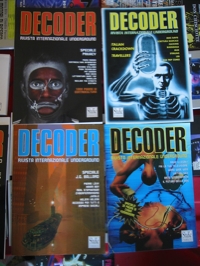
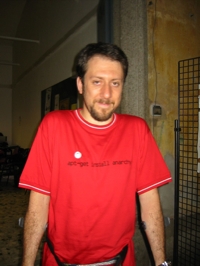

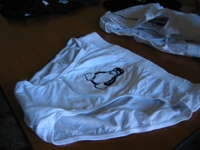
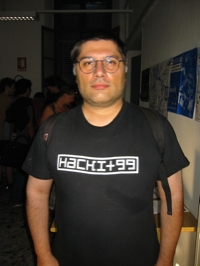
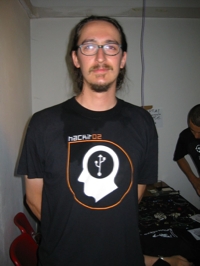
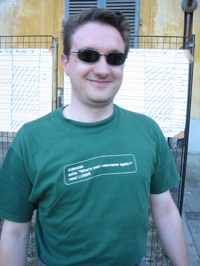
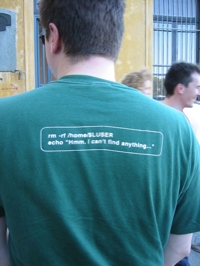

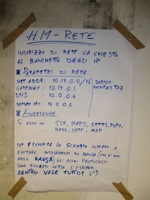
 I can only recommend having a spare Apple AirPort Base Station with you all the time. Makes you much more flexible when on the road. This
I can only recommend having a spare Apple AirPort Base Station with you all the time. Makes you much more flexible when on the road. This